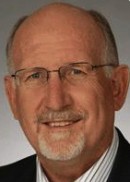Guest Column: Pulse, a year later: We must protect the vulnerable
My faith tells me, as a member of the Christian clergy, that discrimination categorically does not belong here or anywhere.
One year ago, a sanctuary in Orlando was brutally violated. Men and women came to the Pulse nightclub to celebrate, socialize with their friends and express themselves. Yet on that busy Saturday night, a man armed with a rifle and a handgun opened fire outside the club and ran inside to hold hostages for a three-hour standoff.
By the end of the night, 49 men and women were murdered in the worst hate crime and act of terror that our nation has suffered since 9/11. When news of the attack hit, people from all segments of the Central Florida community wept, prayed and mobilized to do whatever was required to help those in need because of the horrors that had transpired. That day Central Floridians saw what it means to be Orlando Strong.
The Pulse massacre was a brutal attack specifically directed toward the gay community. And it was an assault on what should be a place of safety and sanctuary. It was a reminder that people need to be protected.
As a city, Orlando has taken steps to ensure there won’t be a repeat of what happened at Pulse on June 12. But, as I mentioned in a guest editorial at the time of Pulse, we also need to make sure that regular, daily discrimination against our LGBT neighbors and friends has no place in Florida.
My faith tells me, as a member of the Christian clergy, that discrimination categorically does not belong here or anywhere.
Yet let’s face some grim facts: You can lose your job, get kicked out of your apartment or have a doctor refuse to treat you because you are gay or transgender. That’s totally legal. Right now. Right here in Florida.
But we can fix this. A bill has been introduced into every Florida legislative session since 2009 to extend basic protections in public accommodations to LGBT folks throughout Florida. These laws have bipartisan support but have never made it to a vote.
If the legislature doesn’t act, Gov. Rick Scott should step up and protect the vulnerable by signing an executive order forbidding discrimination on the part of the public sector. He needs to make sure that Florida doesn’t continue to allow its vulnerable citizens to be treated poorly.
Jesus, summarizing what spiritual responsibility is all about, says to love God and love our neighbors as ourselves. His teachings suggest that, individually and collectively, it’s our job to treat others the way we want to be treated. Even more than that, Matthew 25 says we need to go out of our way to protect those who are vulnerable.
That means we should extend the same rights to everyone — even people with whom we disagree. This isn’t just a Christian principle. It isn’t even just a religious principle. Rather, it’s a principle that Americans of any faith — or no faith — should be able to agree on.
The Pulse shooting shows how vulnerable the LGBT community is to horrific forms of violence. But we also need to make sure our friends and neighbors don’t suffer from routine forms of discrimination that are entirely legal in our wonderful state.
The legislation currently being promoted is not controversial. In fact, states ranging from Utah to Maryland have passed similar laws. Right here in Florida, Jacksonville recently extended its Human Rights Ordinance to cover LGBT rights.
There’s considerable agreement among clergy that this needs to be a priority for Florida — we need to give our neighbors the same protections that the rest of us enjoy. I’ve joined with almost 300 faith leaders from all across Florida and from a wide variety of faith and political traditions to call on Florida’s government to pass legislation to deal with this crucial need.
This is a concrete way we can honor the 49 victims of the Pulse massacre. By ensuring that the routine discrimination that many of our LGBT neighbors experience is made illegal, we’re treating others as we want to be treated. And we’d be protecting the vulnerable.
We all must stand together to stay #OrlandoStrong.
James Coffin is executive director of the Interfaith Council of Central Florida.

